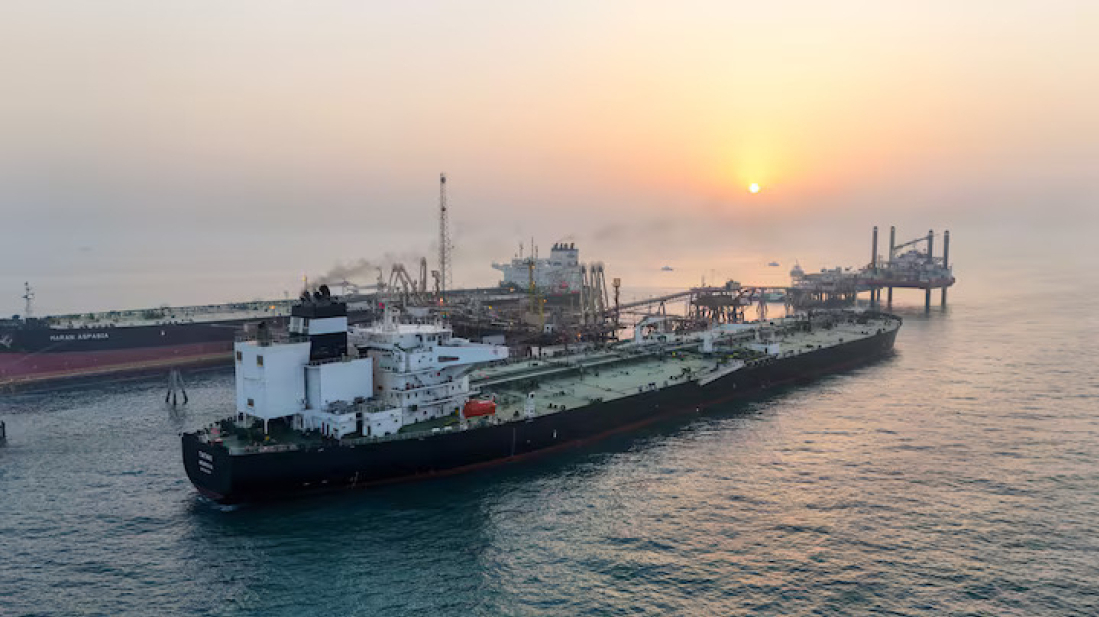Israel prepares for possible U.S. green light to strike Iran ballistic missile sites
Israel is preparing for the possibility of receiving a green light from the United States to launch strikes against Iran’s ballistic missile system,...

Oil prices rose by about 2 percent on Wednesday after U.S. crude stockpiles fell far more than expected, while investors awaited the outcome of efforts to end the conflict in Ukraine, with sanctions on Russian oil still in place.
Brent crude futures climbed $1.02, or 1.6 per cent, to $66.81 a barrel by 1:05 p.m. EDT (17:05 GMT), while U.S. West Texas Intermediate (WTI) rose 95 cents, or 1.5 per cent, to $63.30. According to the U.S. Energy Information Administration, firms withdrew 6 million barrels of crude from inventories during the week ending 15 August — well above analysts’ forecasts of a 1.8 million-barrel draw in a Reuters poll, and higher than the 2.4 million barrels cited by the American Petroleum Institute on Tuesday.
“We had a decent-sized crude drawdown. We saw a rebound in exports ... that and the strong refinery demand really makes this a bullish report,” said John Kilduff, partner at Again Capital.
The rise followed Tuesday’s fall of more than 1 per cent, when WTI closed at its lowest since 30 May amid optimism that a deal to end the Russia–Ukraine conflict might be within reach. U.S. President Donald Trump, however, admitted it was unclear whether Russian President Vladimir Putin was truly interested in an agreement.
“Much of the volatile price action has been driven by daily updates on the Ukraine–Russia negotiations, which have swung between bearish and bullish depending on the perceived impact on future oil balances,” analysts at Ritterbusch and Associates wrote in a note.
Russia, the world’s second-largest oil producer after the U.S. in 2024, would see exports increase significantly if sanctions were lifted. On Tuesday, Trump reiterated that U.S. troops would not be deployed on the ground in Ukraine, but said Washington could provide air support as part of a peace settlement.
On Wednesday, Moscow warned that efforts to resolve security issues over Ukraine without Russia’s involvement would lead “nowhere,” cautioning the West as it sought to establish guarantees for Kyiv. Russian officials in New Delhi said Moscow would continue supplying oil to India despite U.S. warnings, and hoped trilateral talks with India and China would take place soon.
Trump also announced a new 25 per cent tariff on Indian goods exported to the U.S. from 27 August, in retaliation for India’s continued purchases of Russian crude. India’s state-run refiners, Indian Oil and Bharat Petroleum, have resumed buying discounted Russian oil for delivery in September and October, according to company officials.
Meanwhile, Russia’s defence ministry said its forces had advanced in Ukraine’s eastern Dnipropetrovsk region, capturing the village of Novoheorhiivka near Donetsk. “The likelihood of a quick resolution to the conflict with Russia now seems unlikely,” said Daniel Hynes, senior commodity strategist at ANZ.
Other suppliers
Elsewhere, Iran’s foreign minister said the time was not yet right for “effective” nuclear talks with the U.S., though Tehran would not sever ties with the U.N. nuclear watchdog. Iran was the third-largest OPEC crude producer in 2024, behind Saudi Arabia and Iraq, and a deal could add more of its oil to world markets.
In Saudi Arabia, crude exports fell in June to their lowest in three months, data from the Joint Organisations Data Initiative (JODI) showed. In Norway, Europe’s second-largest oil producer after Russia, combined oil and gas output in July exceeded the official forecast by 3.9 per cent, according to the Norwegian Offshore Directorate.
Ruben Vardanyan has been sentenced to 20 years in prison by the Baku Military Court after being found guilty of a series of offences including war crimes, terrorism and crimes against humanity.
The drumbeats have finally faded at the Marquês de Sapucaí, bringing the competitive phase of the Rio Carnival 2026 to a dazzling close. Over two marathon nights of spectacle, the twelve elite schools of the "Special Group" transformed the Sambadrome into a riot of colour.
Peru’s Congress has voted to censure and remove José Enrique Jeri Ore from his posts as President of Congress and acting President of the Republic, just four months into his tenure, citing undisclosed meetings with Chinese businessmen and alleged hiring irregularities.
Start your day informed with AnewZ Morning Brief: here are the top news stories for the 17th of February, covering the latest developments you need to know.
France celebrated Olympic gold in the men’s biathlon relay in Anterselva on Tuesday (17 February), following a thrilling race marked by an electric atmosphere at the stadium.
U.S. President Donald Trump on Wednesday sought to highlight his outreach to Black Americans during a White House reception marking Black History Month, held months before November’s midterm elections.
Hungary and Slovakia announced a suspension of diesel exports to Ukraine on Wednesday.
A platoon of Swedish Air Force Rangers is training in Greenland as part of the ongoing “Arctic Endurance” exercise, according to Sweden’s military.
U.S.-mediated talks between Russia and Ukraine in Geneva ended after two days of negotiations that Ukrainian President Volodymyr Zelenskyy described as difficult, while signalling progress on the military track.
Millions of Muslims around the world have begun observing Ramadan, the ninth month of the Islamic lunar calendar and the most sacred period in Islam.
You can download the AnewZ application from Play Store and the App Store.

What is your opinion on this topic?
Leave the first comment